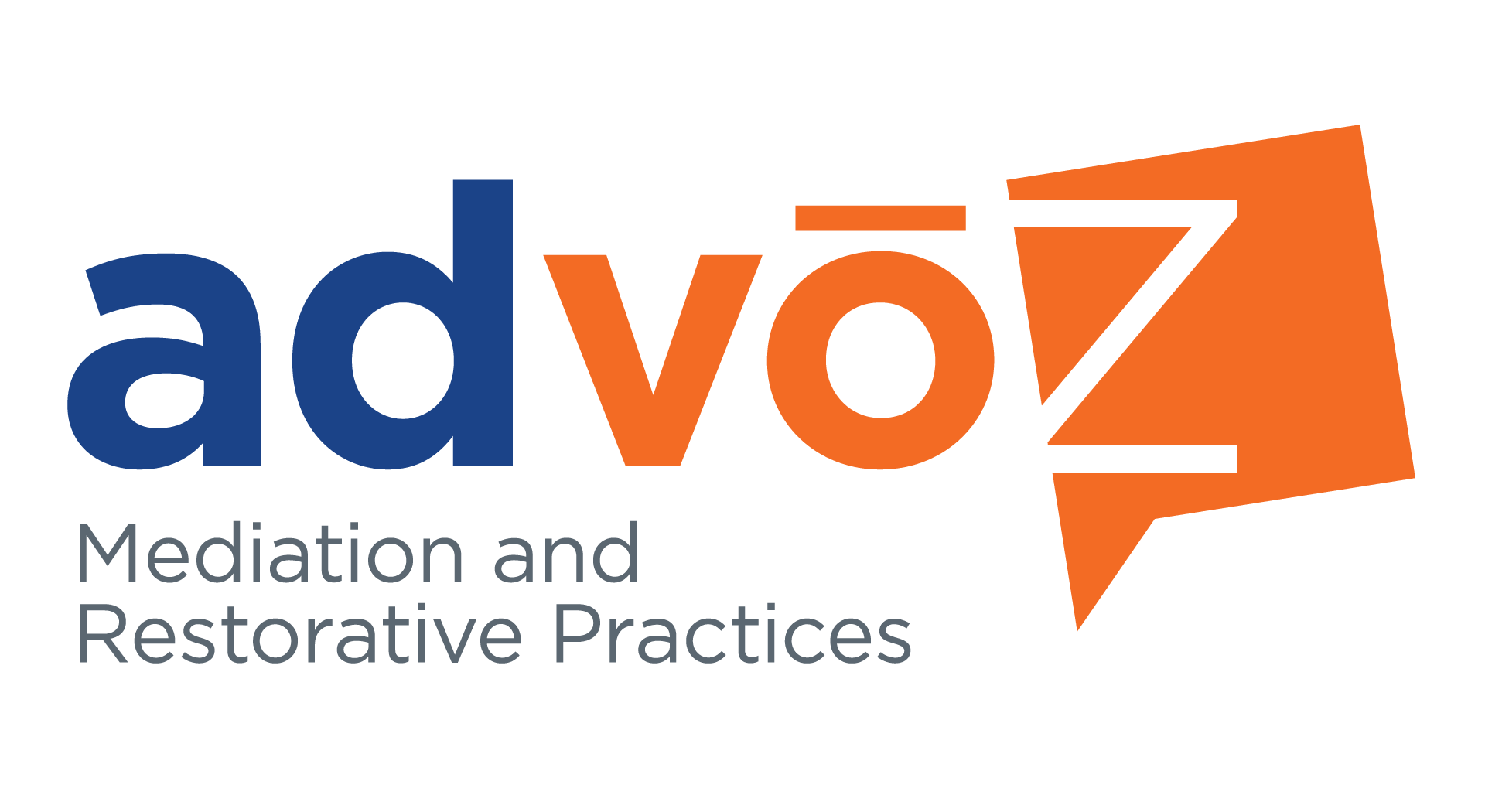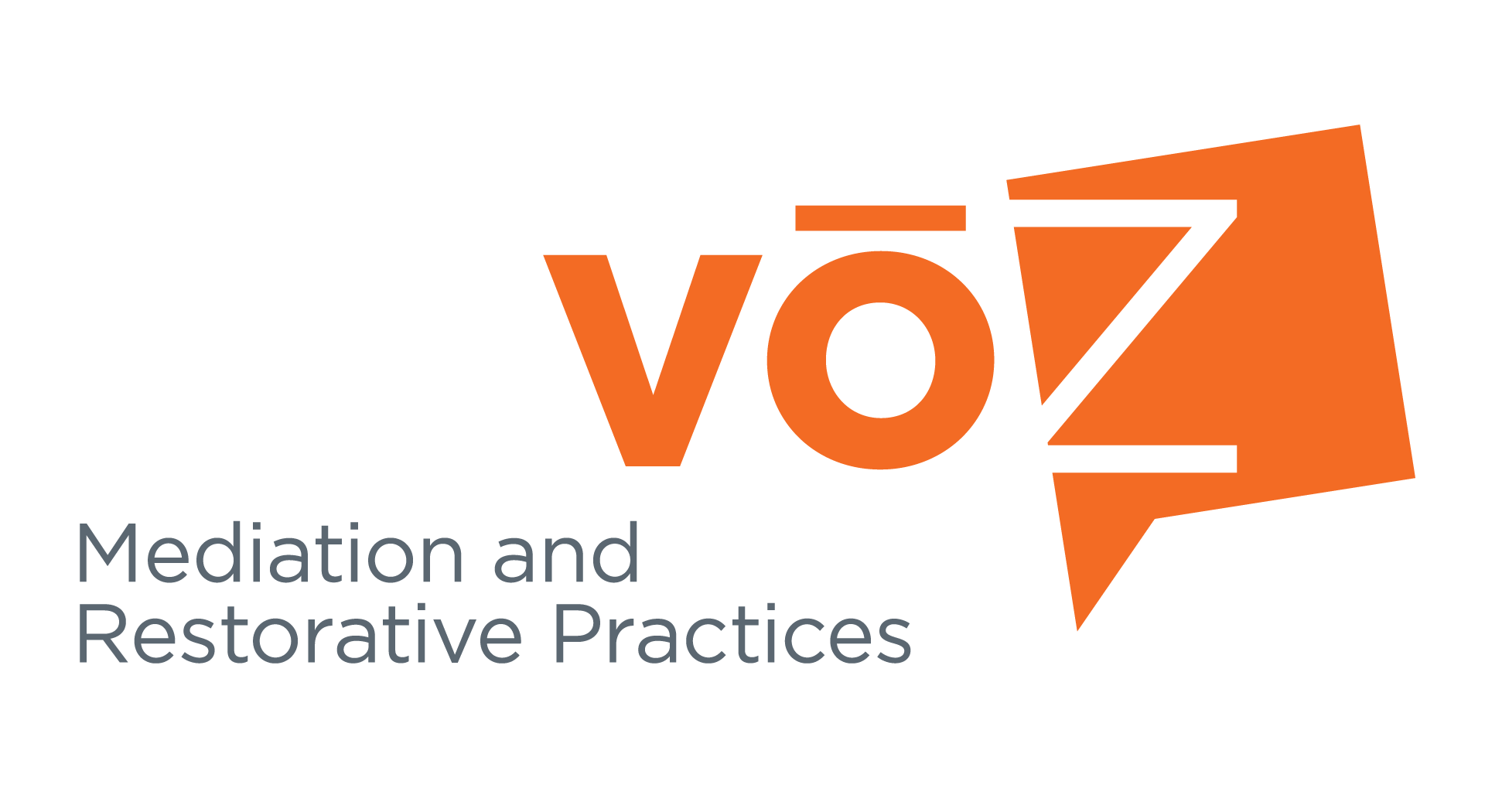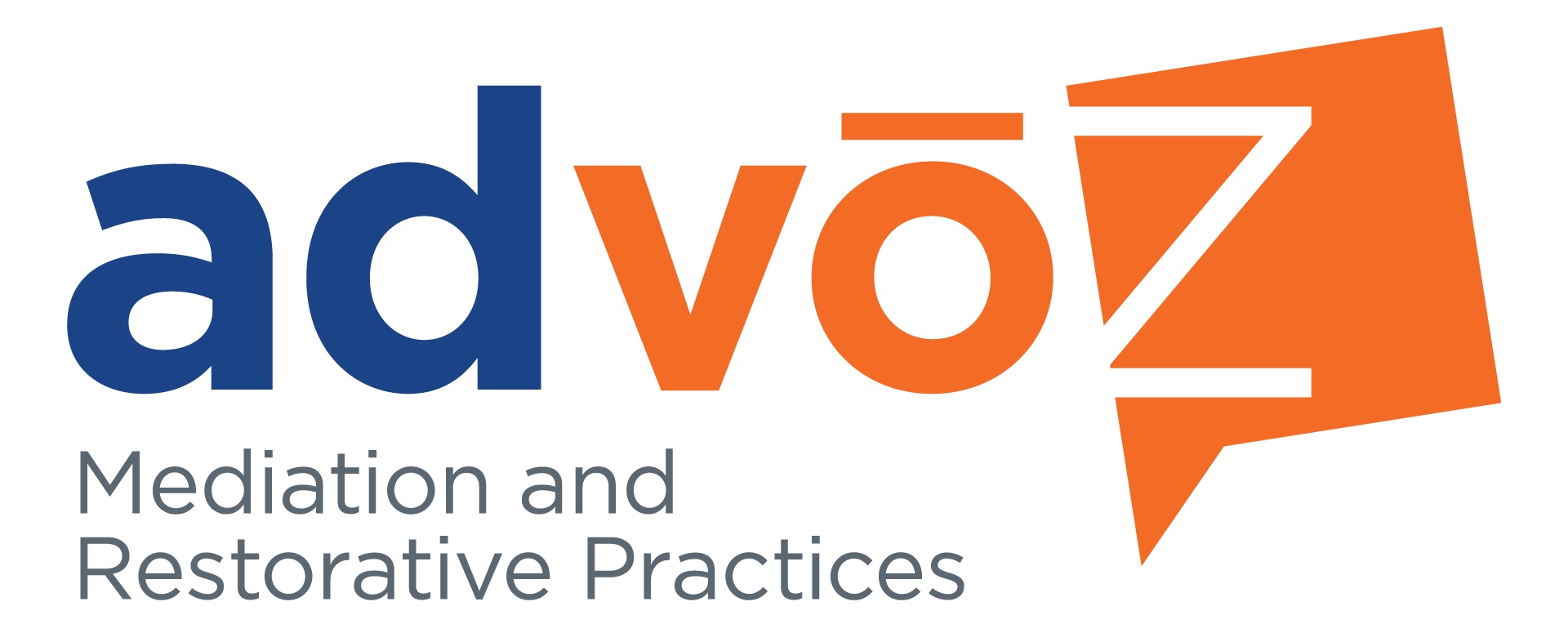Making it Right
Supporting juvenile offenders in Lancaster, PA
Restorative dialogue for youth and their parents seeking to move forward in repairing the harm.
Actions can’t be reversed, but there’s a process that can help you move forward.
If you’ve harmed someone, or know someone who has, you can help take responsibility through a facilitated dialogue process called “restorative justice conferencing” with those who’ve been affected.
No matter the offense, we provide opportunities for you to tell your part.
If you want to make things right and make sure that the incident doesn’t happen again, restorative justice can help you and everyone involved move forward.
We can help you begin true healing through Restorative Justice Dialogue.

Restorative Justice Dialogue
Advoz helps juveniles in Lancaster, PA who have caused harm in a process called restorative justice dialogue.
We create a safe space where you are invited to tell your story through face-to-face dialogue with a trained facilitator to help you move forward in hope.
Restorative Dialogue will help you:
- Move towards making things right for you, the harmed and everyone impacted.
- Understand and meet the needs of the person you harmed.
- Seek healing for the harms that contributed to the offending behavior.
- Transform blame and shame into responsibility.
- Fulfill the conditions that the court or your youth aid panel has given you.
- Establish a fresh start by putting the incident in the past.

You can find hope and healing.
We can help.
We understand it takes a lot of courage and humility to come to invite another party into the hurt and harm in your life.
When you come to Advoz, we hold your hurt with kindness and lead you to the hope and healing you seek through our proven practices.
Don’t wait another day.
Reach out to start the process of restoration and create a hopeful future!
How does this process work?
We walk your through a proven process that was formulated in the 1990s which addresses the harm caused in the crime or violation through face-to-face dialogue alongside a trained facilitator.
1.
Contact Us
When you reach out to Advoz, your case will be assigned to a professionally trained Advoz facilitator who will contact you to schedule a time to meet with you and your family.
2.
Explore
You’ll have an initial call with your facilitator where you will share about the incident and your reactions while the facilitator helps you uncover your needs for healing and explore if and how a dialogue with those you’ve hurt could help.
3.
Create Restoration
If everyone voluntarily agrees, you will have an opportunity to proceed in a facilitated face-to-face dialogue between you and the other person(s). Expect accountability, learning, and closure.
Expect a chance to make things right, show up as your best, and take a fresh start.
Find restoration today!
This hurt you’ve caused doesn’t need to hold your life back. Reach out to Advoz today to begin the process of healing and creating hope for your future.

“Really helped me understand how severe this situation is.”
– A young man after meeting with those harmed
More Information About Our Restorative Justice Dialogue Program
If you are a youth in the Lancaster County Juvenile Court system and you’ve been involved in causing harm to another person or their property, your case will be referred to Advoz by your probation officer and the court.
If you are a youth meeting with a community Youth Aid Panel, the panel may also refer you to Advoz. Please talk with either the probation officer or the Youth Aid Panel about being involved with a restorative justice conference.
You can expect a call from Advoz up to several weeks after we receive your referral. You can also call our Restorative Justice Program Coordinator directly to check on the status of your referral or to see if your particular incident qualifies for our Restorative Justice Dialogue program.
Is the process safe?
Yes. Emotional and physical safety is a priority. A face-to-face dialogue will take place only if:
- You are comfortable meeting with the other person.
- The facilitator has determined there is no potential harm or risk to either person
- Both sides agree to be respectful and not cause any harm to the other person.
Restorative justice dialogue sessions take place in a publicly accessible location. You will also talk with the other person about what you need to ensure safety in the future.
Do I get a chance to tell my story?
Yes. The face-to-face dialogue between you and the other person will be conducted by a facilitator so that everyone’s stories, concerns, and ideas for resolving the incident are heard.
Watch this story below and see how Advoz Restorative Justice Dialogue brought them hope and healing:
Hope, healing, and a bright future are possible.
Choose restoration for yourself & others today!

You can also call to find out how to get started:
Phone: (717) 397-2404, Monday-Friday, 9 AM – 4:30 PM.
Email: restorativejustice@advoz.org
Advoz does not discriminate on the basis of race, color, national origin, religion, sex, sexual orientation, gender identity, disability, or age. Advoz does not retaliate against persons who file a complaint about discrimination or participate in a discrimination proceeding. .
Find Resolution and Healing
We believe there is always a possibility of restoration.
Let us create those possibilities together.
Advoz: Mediation, Restorative Justice & Training in Pennsylvania

